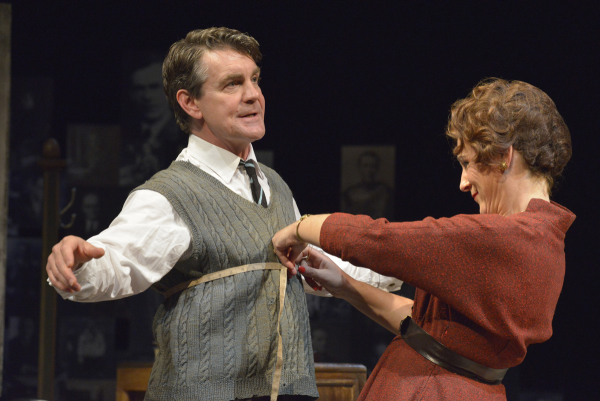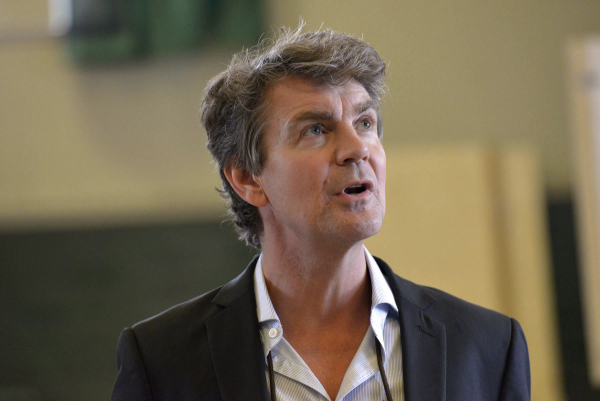Single Spies (Rose Theatre, Kingston)

© Keith Pattison
Alan Bennett's double bill about double agents and double speak is a literate, challenging and always enjoyable meditation on our national character, even if Sarah Esdaile's efficient and well-considered revival has a problem finding its focus in this unkind, difficult auditorium.
The first play, An Englishman Abroad, recounts the meeting of Australian actress Coral Browne with spy Guy Burgess in Moscow in 1958, when she was touring with Michael Redgrave as Hamlet (playing his mother Gertrude, although, as she says, scarcely five minutes older than him).
The second, A Question of Attribution, set in the late 1960s, places a senior member of the Cambridge spy circle, art historian Anthony Blunt, in conversation with an expert restorer in the Courtauld Institute, where he was the director, and later with the Queen in Buckingham Palace, where he was Keeper of HMQ's pictures.
When Prunella Scales walked on at the newly dubbed Royal National Theatre as HMQ in 1988, this was the first time a living royal had been impersonated on the stage; now HMQs, and other royals, are two-a-penny, but Helen Schlesinger makes her both dumpy and curious in a fresh sort of way, just as she makes Coral Browne far more forthright than glorious or glamorous, playing against the "camp" that engulfed Burgess like a reviving waterfall.
Englishman was originally a 1983 television film, directed by John Schlesinger (no relation of Helen), with Coral Browne playing herself opposite Alan Bates. And in the first NT stage version, Alan Bennett played the tailor whom Browne goes to see about ordering Burgess a suit in London before delivering a brilliant performance as Blunt.
At the Rose, Michael Pennington is a desiccated, dry old Blunt rather than a sharp and brilliant one, but he has a sure command of the writing's anecdotal shape and quality, just as Alexander Hanson as Guy Burgess – sliding suavely from one slimy, deceitful hedonist of the establishment, Stephen Ward, to another – buckles his performance to a marked sense of telling his own story as a distinct type of Englishman in exile.
The anecdotage elides into a thrilling sequence of lecture-hall exposition with the "third man" of the first play revealed alongside the missing face in Titian's "Allegory of Prudence" in the second. And when HMQ blithely relates Blunt's expertise in Poussin to the chicken "one's just had for lunch, I suppose it's fresh in the mind," Bennett comes full circle to a music-hall pun in his tapestry of double meanings.
Each play acts as an echo chamber of the other, the theatrical dimension achieved in the role-playing of actors, spies and even HMQ, self-consciously aware of her "function." The show conveys this admirably, not least in Francis O'Connor's design of a battery of mug-shots that isolate the spy ring in a lighting coup (by Paul Pyant). Photography is usurped by art in the interval, as restored Renaissance pictures and slideshows uncover the witnesses before they are framed.











